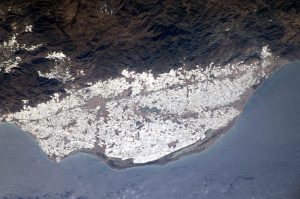AC1:
“Scientific literacy is the knowledge and understanding of scientific concepts and processes required for personal decision making, participation in civic and cultural affairs, and economic productivity.”(National Science Education Standards, 1996, pg.22)
In order for someone to be capable of understanding and fully comprehending the depth and importance of science in our society as a whole, one must be ‘scientifically literate’. “Science and literacy are interwoven. In order to take part in a science activity children need to be able to communicate both by spoken and written word” (Hollins and Whitby, 2001, Pg.3). This, however, applies to aspects beyond the curricular subject of science itself, as enabling children to experience scientific concepts within the classroom will prepare them for life beyond school. The art of science itself is very much about delving into the world in which we live in and having the ability and confidence to pick apart theories and concepts, much like in other subject areas within the curriculum. Being teachers, we need to have a strong grasp on this concept of being literate in science in the same manner we would as being literate in language itself. Giving children the correct tools to comprehend, analyse and reflect upon scientific experiments and reactions will allow them to build a safe and healthy relationship with science as a whole. Progression through education sees the scaffolding approach to teaching science being a perfect way in enabling pupils to be scientifically literate because learning is built upon through the stages, which coincides with one of the principles of the curriculum, progression – “opportunities to develop skills for learning, skills for life and skills for work for all young people at every stage” (Scottish Government, 2008, pg. 7).
AC2:
Problems arise when individuals have not been taught the correct methods and practices when being investigative with science, particularly within the wider media. Today, the media is littered with varying claims, news reports and beliefs on just about anything scientific. Controversial headlines are used in journalism to attract readers into the stories being reported and a lot of the time the degree of severity in the headlines are normally heightened in order to gain attention. Reports can of course be flawed and in many instances cause a media frenzy with the ‘scientifically illiterate’ claims being unavoidable for the public. A big example of this is the MMR vaccine scare that plagued the media with the claim that the vaccine caused the development of autism in children. This false claim was made by a now disproven doctor called Andrew Wakefield. Wakefield made the claim in 1998 during his investigations into autism and his status of being a doctor led to his findings being taken as complete fact by many in the media. This then led to avoidable deaths of many children due to them not getting the vaccine, due to the fears held by the parents that their child would develop autism. A report made in 2004 found that Wakefield’s claims were indeed flawed. This is a clear example of where lack of science literacy within society caused many to create conclusions without core facts and thorough evidence. This is a huge problem in science that can have disastrous consequences. This is why, as educators we need to prepare children with the skills to be able to analyse the claims that will be thrown at them, both true and false.
AC3:
This, almost imposing, effect the media has on our society can be beneficial to teachers to some degree as research associate, Caren Cooper, insists that “studies have shown that educators would be more effective if they expanded their modes of communication beyond science centers and museums to radio, television, movies and blogs” (Ramanujan, 2011). Going beyond the traditional teaching methods of science will, in turn, remove the traditional errors made in the long run. Embracing the media for what it is has a better impact than refuting it completely and having a head in the sand approach to it. Unfair testing, making a test deliberately flawed in its amount of variables, is a great way of flipping the idea of result finding on its head within the classroom. Experiments are meant to be controlled, with only a few variables changed in order to collect accurate date, however, making a test extremely unfair makes a great talking point for the kids to identify where an experiment was flawed and could be amended to be fairer. Teaching kids about these types of claims within the media and showing them unfair tests will put them in the right direction of being scientifically literate as they can see what is real and what needs to be challenged and changed. These are valuable skills that, not only consolidate the learning of science, but also enable pupils to be critical when coming to conclusions in everyday life.
Group 1 – Alan Macdonald, Emily Gunn, Lauren Farquhar and Rachel Adamson
Reference:
Greenslade, Roy (2013) The Story Behind the MMR Scare Available at: https://www.theguardian.com/society/2013/apr/25/mmr-scare-analysis (Accessed 4th of February 2017)
Hollins, Martin and Whitby, Virginia (2001) Progression in Primary Science: A Guide to the Nature and Practice of Science in Key Stages 1 and 2, Second Edition, London.
National Science Education Standards (1996) Scientific Literacy Available at: http://www.literacynet.org/science/scientificliteracy.html (Accessed 26th of January 2017)
Ramanujan, Krishna (2011) Public Distrusts Climate Science Partly Due to Lack of Media Literacy, Available at: http://www.news.cornell.edu/stories/2011/03/distrust-climate-science-due-lack-media-literacy (Accessed 27th of January 2017)
Scottish Government (2008) Curriculum for Excellence: Building the Curriculum 3 – a framework for learning and teaching Available at: http://www.gov.scot/resource/doc/226155/0061245.pdf (Accessed 6th of February 2017)



